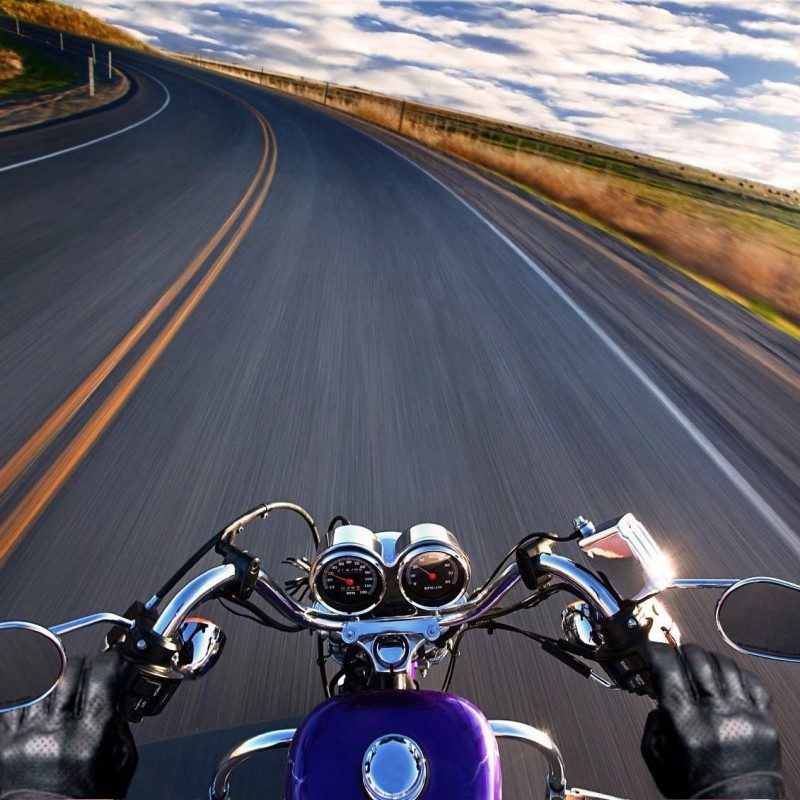Physical Address
304 North Cardinal St.
Dorchester Center, MA 02124
Physical Address
304 North Cardinal St.
Dorchester Center, MA 02124

Motorcycles provide an exhilarating way to traverse the roads, but they also come with risks, especially regarding impaired driving. To enhance road safety and reduce the likelihood of accidents, many states have implemented laws requiring interlock devices for motor vehicles. However, the regulations surrounding what states allow motorcycle interlock devices can vary significantly. With growing interest in traffic safety and a clear need to combat drunk driving, understanding these laws has become increasingly important for motorcycle enthusiasts and operators alike. In this comprehensive overview, we will delve into the concept of motorcycle interlock devices, review specific states that permit their use, explore the implications for riders, analyze effectiveness in reducing drunk driving incidents, and offer guidance for compliance with interlock regulations. This article serves as a definitive guide for understanding the intersection of motorcycle safety and state legislation.

Motorcycle interlock devices, commonly known as ignition interlocks, are technology designed to prevent vehicles from starting if the operator has a blood alcohol content (BAC) above a predetermined limit, usually 0.08%. While interlocks have traditionally been associated with cars and trucks, their application to motorcycles is gaining traction.
These devices require the rider to provide a breath sample before starting the bike. If the device detects alcohol above the set limit, it will prevent the ignition from engaging. Most interlock systems also require periodic breath tests while the vehicle is running to ensure that the rider remains sober during operation.
The goal of integrating motorcycle interlock devices into state laws is to curb driving under the influence (DUI) offenses. Statistics show that alcohol significantly impairs judgment and reaction times, leading to an increased likelihood of accidents. By requiring riders to use an interlock device, states aim to create a safer riding environment for everyone and reduce the number of alcohol-related crashes.
As of now, not all states have adopted laws surrounding motorcycle interlock devices, creating a patchwork of regulations throughout the country. The following sections will detail specific states that allow motorcycle interlock systems and discuss their respective laws.
In California, as part of the state’s DUI laws, ignition interlock devices can be mandated for motorcycle operators with multiple DUI offenses. The state has increasingly recognized the importance of interlock systems in reducing repeat offenses among motorcyclists.
Arizona is known for having strict DUI laws, including the requirement for ignition interlocks for all vehicles, including motorcycles. The regulations ensure that motorcyclists are held accountable and contribute to declining alcohol-related incidents on the road.
New Mexico also mandates interlock devices for offenders, applicable to motorcycles as well. The law states that a rider with a DUI conviction must install an interlock device on their motorcycle, reinforcing the state’s commitment to road safety.
In Utah, laws require that individuals who have been convicted of a DUI offense must install ignition interlock devices in their vehicles, including motorcycles. Furthermore, the state has committed resources to public education about the dangers of drunk riding.
Texas allows and encourages the use of ignition interlock devices for motorcyclists with prior DUI offenses. The law emphasizes the importance of preventing impaired individuals from operating any motor vehicle, including motorcycles.
In Tennessee, motorcycle interlock requirements are applicable to individuals with DUI convictions. The law mandates that offenders must utilize ignition interlock devices as a condition of license reinstatement.
Minnesota has legislation that allows for the usage of interlock devices for motorcyclists; however, the implementation varies based on specific circumstances. Offenders must meet specific criteria to have the interlock installed on their motorcycles.

To understand the significance of motorcycle interlock laws, one must examine their impact on public safety and legal compliance.
Studies have shown that ignition interlock devices significantly reduce the chances of repeat offenses related to alcohol. By preventing intoxicated riders from starting their vehicles, interlock systems contribute to reduced accident rates and fatalities on the road.
By putting these laws into practice, states empower law enforcement agencies to take a proactive stance against drunk riding. Officers can easily identify vehicle operators with interlock devices through checkpoints, ensuring compliance with regulations.
Another vital aspect influenced by motorcycle interlock laws is public awareness. Legislative changes often lead to outreach efforts that educate the public about the dangers of drunk riding and how interlock devices work. These initiatives aim to shift societal perceptions concerning impaired driving.
Navigating compliance with motorcycle interlock regulations can be complex, especially for individuals with prior DUI convictions. Here are essential guidelines to keep in mind:
The first step is to gain a thorough understanding of your state’s specific laws about motorcycle interlock devices. Regulations can vary including the circumstances under which you’re required to install an interlock device.
Once you understand the legal requirements, you will need to consult with authorized service providers to install the ignition interlock device on your motorcycle. Ensure that the installation is done correctly and follow all guidelines provided.
Interlock devices typically require routine calibration and maintenance to ensure they operate correctly. Regularly check for any notifications from the service provider related to maintenance or compliance checks.
Many states require regular check-ins to ensure compliance with ignition interlock laws. Participating in these monitoring programs will safeguard your ability to drive legally and safely.
Understanding motorcycle interlock devices comes with questions and concerns. Addressing these common misconceptions may help ease anxieties and promote responsible riding practices.
Frequently, people wonder about the reliability of interlock devices. Modern ignition interlocks are designed with sophisticated technology to ensure accurate readings. Most devices are calibrated regularly, which contributes to their reliability.
While an interlock device may seem cumbersome, most riders adapt to the system quickly. Once familiar with the testing process, many riders find it integrates smoothly into their routine, ensuring they only ride sober.
Operating vehicles without an ignition interlock is typically prohibited for individuals required to have one. It’s essential to adhere strictly to state regulations regarding driving any vehicle during this time.
As the conversation surrounding road safety evolves, so too does the regulatory landscape for motorcycle interlock devices. Future trends may include:
More states may consider adopting motorcycle interlock laws as awareness of the dangers of impaired riding continues to grow. As motorcycle usage rises, states will likely review existing legislation and enhance requirements to keep roadways safer.
The technology behind motorcycle interlock devices will likely advance to better incorporate methods for accurate BAC readings while remaining user-friendly. Innovations may also include smartphone integration, real-time monitoring, and improved analytics for both users and law enforcement.
Public advocacy campaigns focused on the reduction of impaired driving may push more states to adopt comprehensive motorcycle interlock laws. Organized efforts from safety organizations and law enforcement agencies will continue to emphasize the importance of such measures.

Understanding what states allow motorcycle interlock devices is vital for both current and prospective riders, especially those with DUI histories. Legislative landscapes are continually evolving, and it’s crucial to stay informed about the laws that govern motorcycle safety.
Motorcycle interlock devices serve as an essential tool for preventing impaired riding and enhancing public safety. As riders navigate the complexities of these regulations, they can contribute to reducing alcohol-related incidents on the road. With potential shifts in legislation on the horizon, awareness, adherence, and advocacy surrounding motorcycle interlock laws will play a crucial role in promoting safer riding practices for everyone.
By following the guidelines on compliance, maintenance, and public education, riders can foster a culture of safety that benefits us all. Ultimately, the integration of motorcycle interlock devices represents a proactive approach to enhancing the biking experience while prioritizing the wellbeing of motorcyclists and fellow road users.